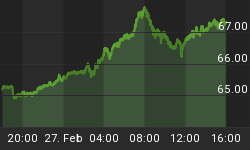Frequently coming off as an eccentric, if somewhat ruthless, genius, Elon Musk has time and again pushed the boundaries of technology and achieved ground-breaking success. He helped create PayPal, one of the largest and most successful online payment networks. His electric cars have revolutionized the way the world, including car-making veterans, view cars. And now he has beaten mighty NASA to the punch after demonstrating that fully reusable orbital systems are not just another harebrained notion of overreaching space buffs. On Thursday, Musk’s space company SpaceX made history after launching a used robotic Dragon cargo capsule on a record 3rd run.
After a one-day delay due to bad weather, the two-stage Falcon 9 rocket lifted off at 6:01 p.m. EDT (2201 GMT) from Cape Canaveral Air Force Station with a rather strange payload consisting of 5,500 pounds of experiment paraphernalia, an Adidas soccer ball, a pouch full of Nickelodeon's green slime and supplies and food for the six astronauts aboard the International Space Station (ISS).
Moon landing
The flight marks the 18th mission by SpaceX under its commercial cargo resupply services it’s undertaking on behalf of NASA. It also marks the first time a Dragon spacecraft has flown to the station three times. The Dragon is sporting two ISS decals to commemorate the 50th anniversary of the Apollo 11 moon landing.
Executing a flawless trip to and from the station will be considered a highly significant milestone in the drive towards creating reusable hardware that can lower the cost of space travel. The spacecraft is currently still in orbit and is scheduled to link up with the ISS on Friday. It will then depart the space station in about four weeks, bringing home about 3,300 pounds of research material.
In case you are wondering about the goofiness of sending slime and a soccer ball to space, well, Nickelodeon says they are for promotional purposes meant to encourage more kids to study STEM subjects--presumably after watching cool videos of astronauts playing around with the objects in near-zero gravity.
Space tourism
In 2017, SpaceX made history again after launching a partially reusable rocket to orbit for the first time ever.
Reusable rockets is quite a novel concept in space travel that has been floating around for years but has never been tested until now. Most used rockets end up at the bottom of the oceans or are destroyed once they complete their journey. This essentially means that astronauts have to assemble new rockets whenever they want to mount new expeditions, a wasteful and costly process.
Related: Battery Metals Face Looming Supply Crunch
The regular cost to send a single rocket to the ISS currently exceeds $60 million for a single trip. It’s estimated that a reusable rocket can shave off about 30 percent from that. Elon Musk has said that the Falcon 9 can potentially fly up to 10 times with no major hardware changes. That means that the rocket can potentially save up to $200 million in total travel costs over its lifespan.
The reduced cost of space travel is expected to have a positive impact on the dynamics of space travel. Lower operational costs allow a higher frequency of missions and more space research to be conducted.
The ability of rockets to return to earth safely will also expand space tourism and allow the super-rich to escape their dreary planet and experience microgravity every once in a while. If that sounds a bit futuristic, consider that UBS has predicted that space tourism is set to blossom into a $20-billion business in just a decade.
Airlines though probably won’t be cheering these developments with the analysts also predicting that point-to-point rocket flights could cannibalize long-haul flights.
By Alex Kimani for SafeHaven.com
More Top Reads From Safehaven.com
















